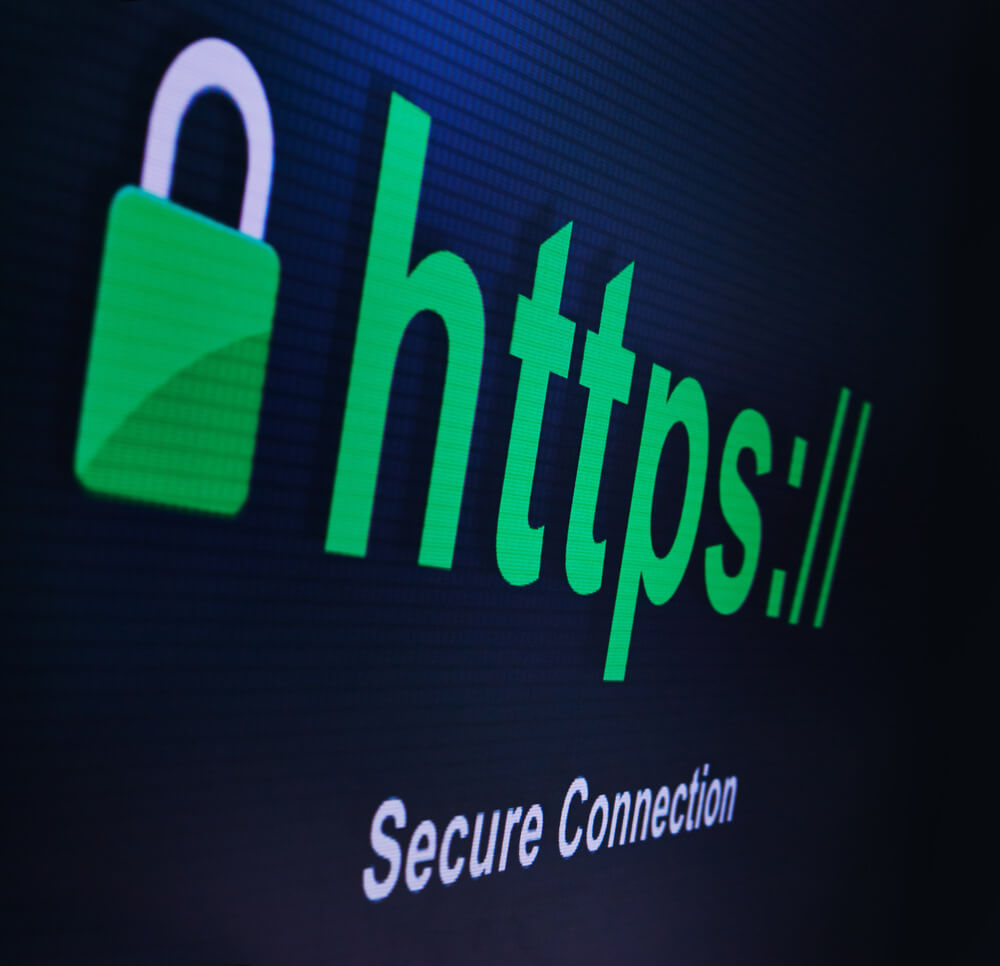In the wild west of the internet, where every website is competing for its slice of the spotlight, staying secure and visible is your golden ticket to success. Imagine trying to make a name for yourself in a bustling bar while avoiding the shady characters lurking around. With online threats sprouting up like weeds and search engines tightening their grip, it’s a high-stakes game of navigating risks while climbing the SEO ladder. That’s where SSL certificates and HTTPS protocols come into play—your essential tools in this digital landscape. Think of them as your reliable bodyguards, protecting you from cyber trouble while boosting your search rankings. These often-overlooked heroes keep your site safe and sound, increasing your chances of snagging that coveted top spot in search results. So, embrace SSL and HTTPS; they’re your keys to thriving in this ever-evolving online world!
SSL and HTTPS: The Essentials You Need to Know
SSL Certificates: Gatekeepers of Security
Think of SSL certificates as the gatekeepers of your website, ensuring that your visitors can trust what they see. These certificates verify that the site you’re on is legitimate and not a counterfeit. When you share sensitive information—like passwords, credit card numbers, or personal details—SSL encrypts that data, keeping it secure as it travels between your browser and the website’s server. This means that, just like a trusted guard at an entrance, SSL protects your information from hackers and snoopers, making it much harder for them to steal your data.
In addition to safeguarding your information, SSL certificates also enhance your website’s credibility. When visitors notice that little padlock icon in their browser’s address bar, it reassures them that they’re on a secure site, encouraging them to engage more freely. Moreover, search engines like Google recognize the importance of SSL and often reward secure websites with higher search rankings. This means that by investing in an SSL certificate, you’re not only protecting your site but also improving your online visibility and building trust with your audience.
Quick Method to Check SSL Certificate Status
- Check for the Padlock Icon: Look for a padlock symbol in the browser’s address bar. If you see it, your SSL certificate is active, indicating a secure connection.
- Verify the URL: Make sure the URL starts with “https://” rather than “http://.” The ‘s’ stands for secure, confirming that your data is encrypted during transmission.
HTTPS: The Protocols of Trust
Think of HTTPS (Hypertext Transfer Protocol Secure) as HTTP’s cooler, more secure sibling. While HTTP is the basic tool for handling web traffic, HTTPS is like an armored vehicle for your data, offering robust protection. With SSL/TLS encryption on its side, HTTPS ensures that your information stays safe from prying eyes. When you see HTTPS in a URL, it’s like the website is proudly displaying a shiny badge that reads, “Your info is locked up tighter than a drum.” And that little padlock icon? It’s not just for decoration—it’s your digital security seal. So, the next time you’re browsing the web, remember that padlock signifies your private info is cruising in a high-security lane, well away from nosy hackers and shady characters.
Quick Sample: If you’re running an e-commerce site, switching to HTTPS is a smart move to boost customer trust. It not only secures transactions but also helps with your SEO rankings. Google favors sites that prioritize user data protection, so don’t miss out on that valuable traffic!
The Nexus Between HTTPS and SEO
Google’s Embrace of HTTPS
Google has been riding the HTTPS hype train for years, advocating for it as a cornerstone of web security. Since 2014, the search giant has encouraged webmasters to make the switch by offering a helpful SEO boost to those who do. If your site is rocking HTTPS, you’re not just ensuring a secure experience for your visitors—you’re also gaining an advantage in search rankings. Google emphasizes that secure browsing isn’t merely a nice-to-have feature; it’s essential for securing a top spot in their search results.
By prioritizing HTTPS, you’re not only protecting your users’ data but also positioning your site for better visibility in an increasingly competitive online landscape. As more websites adopt HTTPS, the importance of standing out grows, making security a crucial factor in attracting and retaining visitors. In this environment, implementing HTTPS can enhance user trust and engagement, ultimately leading to higher conversion rates and improved overall performance for your site.
SEO Benefits of HTTPS Implementation
Beyond just Google’s favoritism, HTTPS offers some significant SEO advantages that both site owners and visitors appreciate. When you switch to HTTPS, your data becomes encrypted, making it much harder for hackers to intercept or tamper with it. This added layer of security protects sensitive information and ensures user privacy, which is increasingly important in today’s digital landscape. As a result, your website gains a more trustworthy and credible reputation among users.
What’s in it for you? A secure site encourages users to feel safer, leading them to stay longer and enjoy a smoother browsing experience. This not only helps to dodge potential security headaches but also keeps visitors happy and engaged. A positive user experience translates to lower bounce rates and a better shot at climbing the SEO ranks. In essence, implementing HTTPS isn’t just about security; it’s a smart strategy for enhancing your website’s overall performance and credibility in the eyes of both users and search engines.
SSL Certificates and Website Authority
In the SEO world, your site’s authority can be a game-changer for your search rankings. Think of SSL certificates as your website’s security upgrade—like putting a top-notch lock on your front door. When you implement SSL, you’re not just making your site more secure; you’re also boosting its credibility. Users are more likely to trust a site that prioritizes their safety, and search engines recognize this. By having SSL in place, you signal to search engines that you’re serious about user security and privacy, which can lead to a significant increase in visibility and help your site stand out in search results.
Let’s say you run an online store. Without SSL, your site might feel a bit sketchy, akin to shopping in a back alley with flickering lights. Visitors might hesitate to enter their payment information, fearing for their data’s safety. However, once you implement SSL, it’s like moving your shop to a high-end mall. Customers feel secure browsing your products, knowing their information is protected. This not only enhances their shopping experience but also makes search engines take you seriously. They reward secure sites with better rankings, so your online store gets that prime visibility in search results. In essence, investing in an SSL certificate is more than just a security measure; it’s a smart move that can elevate your website’s authority and reputation, attracting more visitors and potential customers along the way.
The Impact on User Trust and Engagement

Building Trust Through Security
In today’s world, where cyber attacks and data breaches are alarmingly common, earning user trust is like striking gold. Websites that take security seriously—by implementing SSL certificates and HTTPS—send a clear message that they’re committed to protecting your information. It’s akin to flashing a neon sign that screams, “We’ve got your back!” These security measures not only safeguard sensitive data but also create a welcoming environment for users.
Little security cues like the padlock icon and the “Secure” tag in your browser work like a digital high-five. They provide that warm, fuzzy feeling, reassuring you that your data is in good hands. When visitors see that padlock, they know they’re cruising through a secure zone, which boosts their comfort level and encourages them to stay engaged longer. This sense of security can significantly enhance user experience, leading to increased trust, lower bounce rates, and higher conversion rates. Ultimately, investing in security isn’t just about technology; it’s about fostering a trustworthy relationship with your audience, ensuring they feel safe every step of the way.
Reducing Bounce Rates and Enhancing Conversions
The connection between website security and user engagement is as clear as day. When a site feels secure, people are more likely to stick around and take the actions you want them to, whether that’s making a purchase, signing up for a newsletter, or filling out a contact form. It’s pretty straightforward: when visitors feel safe and protected, they’re more inclined to dive deeper into your site and explore all that you have to offer.
By implementing SSL certificates and HTTPS, you’re not just beefing up security; you’re also creating a welcoming environment where visitors feel comfortable interacting with your site. This sense of security can significantly reduce bounce rates, as users are less likely to leave immediately after arriving. When people feel at ease, they’re more likely to engage with your content and convert into loyal customers. Ultimately, investing in these security measures not only protects your site but also enhances the overall user experience, giving you a better shot at turning casual visitors into repeat customers.
To Sum This Up
In the digital jungle, having credibility and visibility is your ticket to survival. That’s where SSL certificates and HTTPS come into play—they’re like your website’s bodyguards, making sure your online reputation stays strong and trustworthy. By focusing on security and following SEO best practices, you’re not just keeping your site safe; you’re also setting yourself up to climb those search rankings and win over your users.
As the connection between security and SEO gets stronger, jumping on the SSL and HTTPS bandwagon becomes essential. This isn’t just a smart move; it’s a must for protecting your site from cyber threats while boosting your visibility online. In today’s cautious digital world, a secure website shows visitors that you care about their safety. When people feel secure, they’re more likely to hang around, check out your content, and become loyal customers. So, invest in your website’s security—embracing SSL and HTTPS is the way to help your online presence shine.


